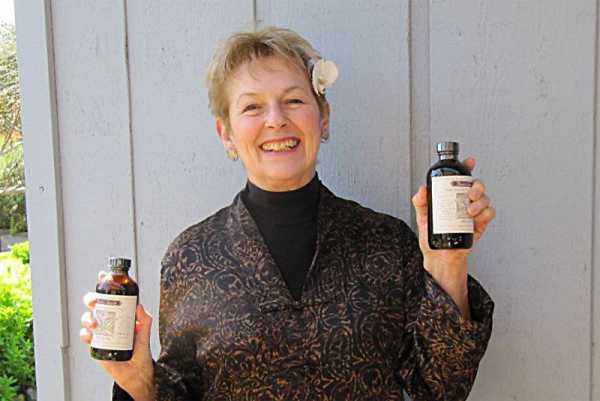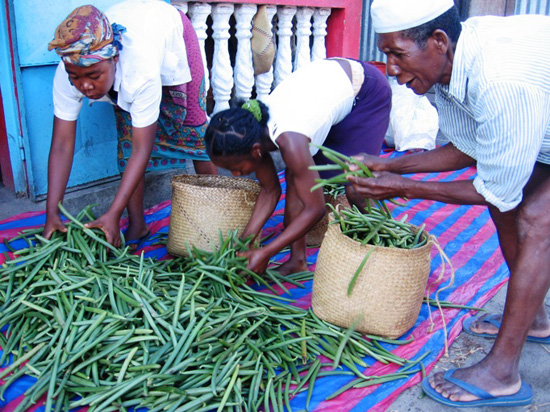
I'm amazed at how superior your vanilla is!
– Des, The Grommet
by Katharine Daniels
Executive Editor, The WIP
– USA –
For me and my colleagues, Nicholas Kristof and Sheryl WuDunn’s new book Half the Sky: Turning Oppression into Opportunity for Women Worldwide is exhilarating. Already in its 17th printing, Half the Sky pulls no punches in detailing the major abuses women suffer worldwide. Through personal stories, told by the women living them, sex trafficking, forced prostitution, honor killings, mass rape, and maternal mortality become shockingly real. Critics believe Half the Sky will ignite the global women’s movement as Rachel Carson’s Silent Spring did the environmental movement in the 1960s. So do I. This remarkable book moves the conversation from women’s issues to human rights; shows change is possible one woman at a time; and, most importantly, inspires hope.
Recently I had the opportunity to talk with this Pulitzer Prize-winning couple. Speaking with them I felt great possibility for change in areas that before seemed unrelentingly dark and difficult – ending the incessant violence against women, emancipating the 100 million women enslaved in sex trafficking operations worldwide, and silencing the bell that rings with the death of a woman in childbirth once every minute of every day.
What becomes clear in reading Half the Sky is the opportunity the emancipation of women provides. Despite the oftentimes devastating read, the authors ask us to bear in mind what they refer to as a central truth: Women aren’t the problem but the solution. The plight of girls is no more a tragedy than an opportunity. Neither Kristof nor WuDunn are shy about their vision for the book, “We hope to recruit you to join an incipient movement to emancipate women and fight global poverty by unlocking women’s power as economic catalysts.”
Although Kristof and WuDunn are confident the atrocities committed against women and girls worldwide will one day be behind us, the pathway there must include both women and men. “If this is a cause that is backed only by women,” Kristof warns, “it has lost already. It is immediately marginalized.” According to Kristof, success will require a broad coalition to resolve an issue that he notes is no more a woman’s issue than the holocaust was a Jewish issue, or civil rights were a black issue. “When 100 million women are discriminated against to death, that’s not just a woman’s issue…both for intrinsic moral reasons and also for practical reasons…it’s essential that men get on board.”
“It really is a partnership,” WuDunn adds. “It’s not women standing up for their rights. It’s really men and women standing up for just human rights.” She further elaborates that what’s needed is a realistic approach “that really focuses on outcomes, not on outrage.”
While traditional feminists, who have cared about these issues for decades, make up the older audiences on their speaking tours, it was encouraging to learn that the younger audiences include many more men. Young men who, according to Kristof, “don’t see this as a women’s issue or a soft issue” but instead “intuitively think that if women and girls are kidnapped and locked up in brothels or die in vast numbers in childbirth – that’s just wrong.”
Kristof and WuDunn’s challenge is to engage partners worldwide in a movement to stop abuses that for most of us are far removed from our daily lives. They use the abolition of slavery in Great Britain in 1807 as what they call “a singular, shining example of a people who accepted a substantial, sustained sacrifice of blood and treasure to improve the lives of fellow human beings living far away.” For its moral commitment to ending slavery, the British sacrificed the equivalent of more than $14 trillion USD today.
Both Kristof and WuDunn were foreign correspondents and editors for the New York Times when they won the Pulitzer for their coverage of China’s Tiananmen Square democracy protests. In the months following this story, they traveled the countryside and discovered staggering human rights violations, claiming tens of thousands of lives that never made the news. “We found that thirty-nine thousand baby girls were killed every single year before they reach the age of one,” WuDunn tells me. Yet unlike Tiananmen, “from the general media’s point of view, thirty-nine thousand baby girls dying every year…is basically not news.” Their book, she remarks, “is an attempt to raise this issue in a manner that would fit the way media covers events.”
I was given a small bottle of Rain’s Choice in a gift basket and I have been hooked ever since. The flavor makes all of my baking so much better! I will never use grocery store vanilla again!


© 2021. All Rights Reserved
Designed/Developed by Kat & Mouse